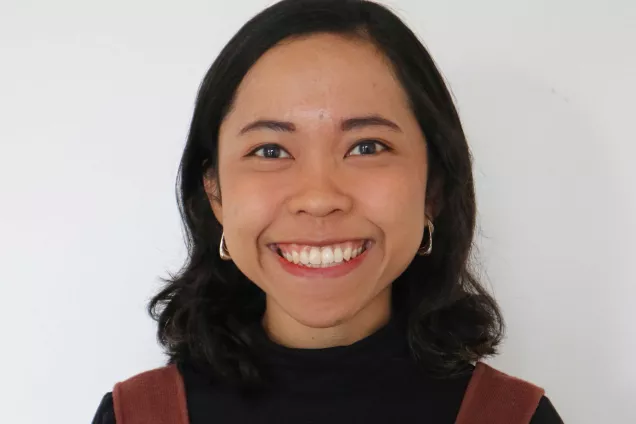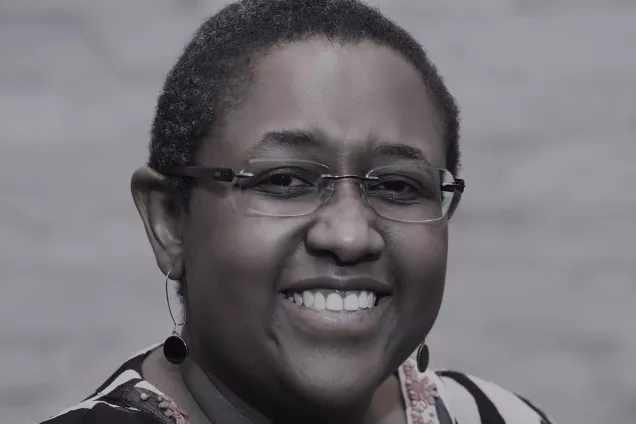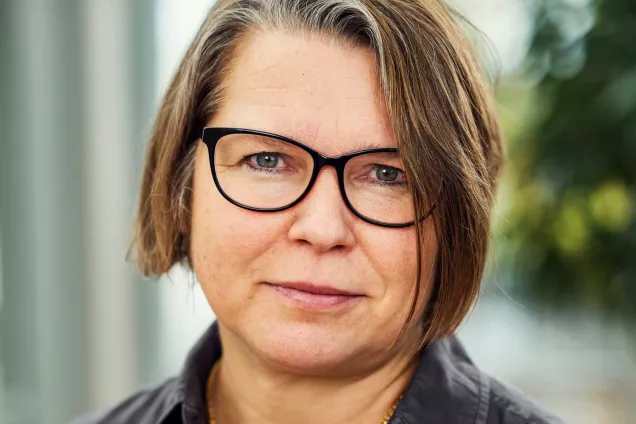Service Management, Culture and Creativity Management - Master of Science programme
Master's programme · 2 years · 120 credits

Description
The Master’s Programme in Service Management is a unique opportunity for those seeking a management programme at an advanced level with a strong link to research. The programme combines in-depth subject knowledge of the service sectors with an understanding of the specific organisational and managerial needs of service activities.
When applying to the Master’s Programme in Service Management, you choose one of five different specialisations: Culture and Creativity Management, Retailing and Consumption, Supply Chain Management, Sustainable Service Management or Tourism. We have a mix of students from all around the world.
Culture and Creativity Management
More diversified demands on managers and professionals within the cultural, creative and non-profit sectors due to technical, economic and social changes call for qualified training in management and development of services, ventures and organisations. You will get a profound understanding of the specific conditions and production processes of the sectors. You will study and analyse theories and case studies from the sectors related to issues like governance, leadership, organising, entrepreneurship and service development.
Course details
Introduction to Service Management (7.5), Introduction to Culture and Creativity Management (7.5), Organization and Management in a Service Context (7.5), Theory of Social Sciences (7.5), Methods in Social Sciences (15), Service Development and Entrepreneurship (15), elective course(s) (15), Management and Governance of Creative Enterprises (15), Master’s thesis (30).
Career prospects
A Master’s in Service Management is for those who seek a career in or already work within the cultural, creative or non-profit sector and look to improve their entrepreneurial and managerial skills, or gain more profound knowledge of the specific governance and dynamics of these sectors. Graduates will be able to work as managers, analysts, consultants or researchers in the cultural, creative, non-profit sectors, or in other parts of the service sector.
More information
Read more about Service Management and Service Studies at the departments website.
Open for applications
Application opportunitiesThis programme is open for applications from 15 October 2024 to 15 January 2025.
Interested in current culture and creativity management issues?
Discover the Culture and Creativity Management Podcast with professionals and students.
Contact
Programme Director
Elin Bommenel
Email: elin [dot] bommenel [at] ses [dot] lu [dot] se
Master Coordinator
Britta Persson
Email: master [at] ses [dot] lu [dot] se
Requirements and selection
Entry requirements
To be eligible for the programme the applicant must have the equivalent of a Swedish Bachelor’s degree with a major (i.e. at least 90 ECTS credits) within one of the following areas: Social Sciences, Business Administration or equivalent.
To be eligible for the specialization Culture and Creativity Management the equivalent of a Swedish Bachelor’s degree with a major (i.e. at least 90 ECTS credits) in Cultural Sciences or equivalent is also sufficient.
English course 6 (advanced proficiency)
Selection criteria
English language requirements
Most of Lund University’s programmes require English Level 6 (unless otherwise stated under 'Entry requirements'). This is the equivalent of an overall IELTS score of 6.5 or a TOEFL score of 90. There are several ways to prove your English language proficiency – check which proof is accepted at the University Admissions in Sweden website. All students must prove they meet English language requirements by the deadline, in order to be considered for admission.
How to prove your English proficiency – universityadmissions.se
Country-specific requirements
Check if there are any country-specific eligibility rules for you to study Bachelor's or Master's studies in Sweden:
Country-specific requirements for Bachelor's studies – universityadmissions.se
Country-specific requirements for Master's studies – universityadmissions.se
Apply
Your selection at www.universityadmissions.se
Day-time Helsingborg, full time 100%
In English
Study period
1 September 2025 - 6 June 2027
Application
Last application date 2025-01-15
How to apply
Lund University uses a national application system run by University Admissions in Sweden. It is only possible to apply during the application periods.
Step 1: Apply online
- Check that you meet the entry requirements of the programme or course you are interested in (refer to the section above on this webpage).
- Start your application – go to the University Admissions in Sweden website where you create an account and select programmes/courses during the application period.
Visit the University Admissions in Sweden website - Rank your programme/course choices in order of preference and submit them before the application deadline.
Step 2: Submit documents
- Read about how to document your eligibility and how to submit your documents at the University Admissions in Sweden website. Follow any country-specific document rules for Master's studies or Bachelor's studies
Country-specific requirements for Bachelor's studies – universityadmissions.se
Country-specific requirements for Master's studies – universityadmissions.se
- Get all your documents ready:
- official transcripts and high school diploma (Bachelor's applicants)
- official transcripts and degree certificate or proof that you are in the final year of your Bachelor's (Master's applicants)
- passport/ID (all applicants) and
- proof of English proficiency (all applicants).
- Prepare programme-specific documents if stated in the next paragraph on this webpage.
- Upload or send all required documents to University Admissions before the document deadline.
- Pay the application fee (if applicable – refer to the section below on this webpage) before the document deadline.
* Note that the process is different if you are applying as an exchange student or as a part of a cooperation programme (such as Erasmus+).
* If you have studied your entire Bachelor's programme in Sweden and all of your academic credits are in Ladok, you do not have to submit transcripts or your diploma when applying for a Master's programme. However, there may still be other documents you need to submit! See the link below.
* Svensk student?
Läs instruktionerna om att söka till ett internationellt masterprogram på lu.se
Programme-specific documents
In addition to the documents mentioned under Step 2, you must also submit a statement of purpose, written in English, when you apply to this programme. Be sure that your complete name, the name of the Master's programme and your application number are visible on this document.
You should address the following questions in your statement of purpose:
- What are your reasons for applying to this programme? (max. 200 words)
- How can you contribute to the programme, and to learning with success? (max. 200 words)
- Describe how you became interested in issues that are related to your chosen specialisation (max. 200 words)
- What are your career ambitions after graduating from this programme? (max. 200 words)
Tuition fees
Non-EU/EEA citizens
Full programme/course tuition fee: SEK 250 000
First payment: SEK 62 500
Citizens of a country outside of the European Union (EU), the European Economic Area (EEA) and Switzerland are required to pay tuition fees. You pay one instalment of the tuition fee in advance of each semester.
Tuition fees, payments and exemptions
EU/EEA citizens and Switzerland
There are no tuition fees for citizens of the European Union (EU), the European Economic Area (EEA) and Switzerland.
Application fee
If you are required to pay tuition fees, you are generally also required to pay an application fee of SEK 900 when you apply at the University Admissions in Sweden website. You pay one application fee regardless of how many programmes or courses you apply to.
- Paying your application fee – universityadmissions.se
- Exemptions from paying the application fee – universityadmissions.se
- Convert currency – xe.com
*Note that there are no tuition or application fees for exchange students or doctoral/PhD students, regardless of their nationality.
Scholarships & funding
Lund University Global Scholarship programme
The Lund University Global Scholarship programme is a merit-based and selective scholarship targeted at top academic students from countries outside the EU/EEA.
Lund University Global Scholarship
Within the framework of the Lund University Global Scholarship programme, the University also offers the African Research Universities Alliance (ARUA) Scholarship targeted at top academic students from selected African research universities.
Swedish Institute Scholarships
The Swedish Institute offers scholarships to international students applying for studies in Sweden at Master's level.
Scholarship information on the Swedish Institute website
Country-specific scholarships and funding options
Lund University has agreements with scholarship organisations and funding bodies in different countries, which may allow applicants to apply for funding or scholarships in their home countries for their studies at Lund University.
External scholarships
Testimonials about this Master's

Meet our student ambassador Julaina
Read her testimonial and chat with her via Unibuddy.

"The teaching style is very centered around teamwork"
Christine from Kenya

"The teachers were very knowledgeable and interactive"
Albert from the USA and Colombia

Read a short interview with our Senior Lecturer
Katja Lindqvist